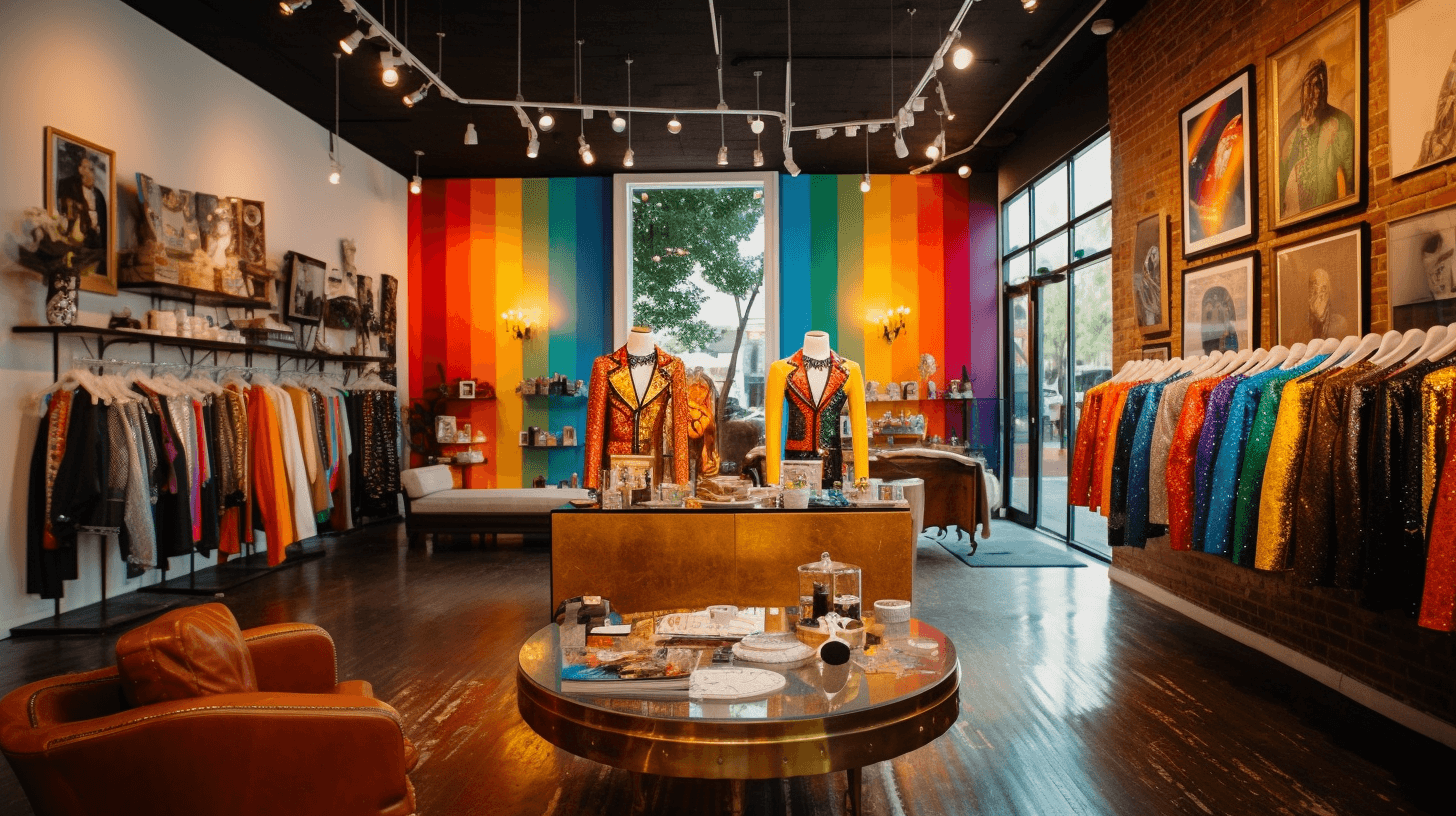🚫 Da F.T.C. Tri fo’ Ban Meta From Using Da Small Kid Data 🚫👧📲
Da Federal Trade Commission (F.T.C.) stay beefing wit’ da tech industry’s big kahuna, Meta, Facebook’s parent company, cuz dey tink Meta no take care of da young ones’ data, brah 🏢🌐. Regulators like go afta sites like Instagram an’ Facebook fo’ no moa make money off da data from da keikis unda 18 years old.
Da commission like expand da $5 billion agreement from 2020, but Meta neva follow da rules fo’ fix dea’ privacy practices fo’ protect da users bettah 🚫🔒. Da regulators also tink Meta no tell da parents da real kine on how dey can control who dea’ kids talk to on da Messenger Kids app, an’ how dey give some app developers access to da users’ private data.
🔁 Dis da tird time da agency wen take action against da social media giant fo’ privacy issues. Da F.T.C. director of da Bureau of Consumer Protection, Samuel Levine, say da company neva care an’ dat wen put da young users in danger. He say Facebook gotta explain fo’ da way dey wen act. 😠
Da F.T.C. administrative action stay serve as one warning fo’ Meta dat dey tinking da company wen break da 2020 privacy agreement. Da document lay out all da kine stuff da commission stay accusing Meta of, plus da proposed rules too.
Meta get 30 days fo’ fight da filing, but neva get heads up from da F.T.C. 📆🚨. Afta Facebook say dea’ part, da commission goin’ tink about da company’s side, den make one decision. Meta can den appeal da agency’s decision in federal court.
Da F.T.C. like stop Meta from making money off da data dey get from da keikis unda 18, an’ like make dis rule fo’ Facebook, Instagram, an’ Horizon Worlds, da company’s new virtual reality platform. Dey no like let Meta make money off da data even afta da kids turn 18 🚫💰.
Dat mean Meta no goin’ be able fo’ use da young ones’ activities fo’ show dem ads dat relate to how dey stay acting, or sell dem digital stuff like avatar clothes.
We no know if one court goin’ approve dis kine changes. Alvaro M. Bedoya, one commissioner who wen vote fo’ da administrative order, say he get concerns if da F.T.C. proposal fo’ restrict Meta’s use of da young people’s data stay related enough to da original case.
Meta say da F.T.C. warning stay “a political stunt” an’ dey introduced one “industry-leading” privacy program cuz of da agreement wit’ da F.T.C. Da company stay ready fo’ fight da agency’s action 💪🏽👊🏽.
Meta say, “Afta tree years of talking story wit’ da F.T.C. about our agreement, dey neva give us chance fo’ talk about dis new, neva-heard-before kine theory.”
Meta wen already limit da ads fo’ da keikis unda 18. In 2021, dey say advertisers goin’ target ads based on da minors’ location, age, an’ gender, but no goin’ target ads on da young ones’ interests or wat dey do on oddah websites. An’ dis year, Meta say dey goin’ stop ad-targeting based on da minors’ gender too 🚫🎯.
Dis da first time da F.T.C. wen propose one blanket ban on da use of data fo’ try protect da online privacy of da keikis 🛡️. An’ dis stay happening during da biggest government push fo’ protect da young Americans online since da 1990s, wen da internet just wen start fo’ be commercial.
Cuz get plenny worries about depression fo’ da keiki an’ how online stuff make ’em feel mo’ bad, lawmakers in at least two dozen states stay introducing bills fo’ make some sites, like social networks, no let da keiki use ’em or limit ’em on dea’ platforms. Regulators stay going all out too, slapping fines on online services wen dey use or misuse data dat could put da keiki in danger 🚸💻.
Da past few years, had plenny people beefing wit’ Meta fo’ suggesting bad kine content like self-harm an’ extreme dieting to da teenage wahines on Instagram, an’ fo’ not doing enough fo’ protect da young users from bad kine stuff like child sexual exploitation.
Da F.T.C. case against da social media giant go way back, brah, mo’ den one decade.
In 2011, da agency wen accuse Facebook of lying to users about privacy. In one settlement, Facebook wen agree fo’ make one solid privacy program, an’ no lie about how dey handle privacy. But den in 2018, had news about one voter-profiling company, Cambridge Analytica, dat wen take da data of plenny Facebook users wit’out dea’ permission, so da F.T.C. wen crack down moa hard.
In 2020, Facebook wen agree fo’ change up dea’ privacy stuff an’ let one independent guy check out if dea’ privacy program stay good. Da company also wen pay one record $5 billion fine fo’ settle da F.T.C. charges 💸.
But da F.T.C. say Facebook wen break dat agreement. In da administrative order on Wednesday, da agency wen point out reports from da privacy guy, saying had “gaps an’ weaknesses” in Meta’s privacy program dat need plenny moa work.
Even tho’ had parts of da report stay blacked out, da report say da privacy guy wen find problems wit’ how Meta stay looking at da privacy risks fo’ da users’ data an’ how dey handle privacy incidents. Da report also talk about how Meta stay taking care of da data-sharing stuff wit’ oddah peeps.
Da F.T.C. going afta Meta show dat da agency stay fo’real about Lina M. Khan’s promise fo’ keep da big tech companies in check. In December, da agency wen try stop da video game makers from joining togeddah wen dey wen file one lawsuit fo’ block Microsoft’s $69 billion buyout of Activision Blizzard, da company behind da famous Call of Duty franchise 🎮💥.
Da F.T.C. also stay moa aggressive about privacy regulation. Instead of only trying fo’ protect da consumers from da big kine surveillance tools, da regulators stay working fo’ ban some kine data collection an’ usage dat dey tink stay high-risk.
In December, da F.T.C. wen accuse Epic Games, da company behind da famous Fornite game, of illegally collecting da keiki’s data an’ putting ’em in danger by matching ’em wit’ strangers an’ letting ’em live chat. Epic wen agree fo’ pay one $520 million fine fo’ settle dose an’ odd ah charges. Da settlement order also wen make Epic turn off live voice an’ text chat by default — da first time da regulators wen put dat kine remedy in place 🎮🔇.
But da data restrictions da agency like put on Meta stay way moa big, brah.
Da F.T.C. proposed changes would stop Meta-owned sites an’ products from making money off da young ones’ data. Dat mean da company platforms like Horizon Worlds only can collect an’ use da keikis’ info fo’ provide services to da users an’ fo’ security purposes 🔐.
Da F.T.C. also like make one rule wea Meta no can release any new products or features until da company can show, wit’ one written confirmation from one independent privacy assessor, dat dea’ privacy program stay following da 2020 consent order 💯.
So, da F.T.C. stay going all out fo’ try protect da young ones online, an’ dis whole beef wit’ Meta stay one big part of dat. We goin’ see wat goin’ happen next, but fo’ now, da F.T.C. stay putting da heat on da tech industry’s big players fo’ da sake of da keiki’s privacy an’ safety 🔥👨💻👧.
NOW IN ENGLISH
🚫 The F.T.C. Tries to Ban Meta From Using Children’s Data 🚫👧📲
The Federal Trade Commission (F.T.C.) is clashing with the tech industry’s giant, Meta, Facebook’s parent company, because they think Meta doesn’t protect children’s data properly 🏢🌐. Regulators want to target sites like Instagram and Facebook to prevent them from making money off the data of users under 18 years old.
The commission wants to expand the $5 billion agreement from 2020, but Meta didn’t follow the rules to improve their privacy practices to better protect users 🚫🔒. Regulators also believe Meta didn’t inform parents about how they can control who their children interact with on the Messenger Kids app, and how they provided some app developers access to users’ private data.
🔁 This is the third time the agency has taken action against the social media giant for privacy issues. The F.T.C. director of the Bureau of Consumer Protection, Samuel Levine, says the company didn’t care and put young users in danger. He says Facebook must account for their actions 😠.
The F.T.C. administrative action serves as a warning to Meta that they believe the company broke the 2020 privacy agreement. The document outlines the allegations the commission is making against Meta, as well as the proposed rules.
Meta has 30 days to respond to the filing but didn’t receive a heads up from the F.T.C. 📆🚨. After Facebook presents their side, the commission will consider it, then make a decision. Meta can then appeal the agency’s decision in federal court.
The F.T.C. wants to stop Meta from making money off the data they collect from users under 18, proposing this rule for Facebook, Instagram, and Horizon Worlds, the company’s new virtual reality platform. They don’t want Meta to profit from the data even after the children turn 18 🚫💰.
This means Meta won’t be able to use children’s activities to show them related ads or sell them digital items like avatar clothing.
It’s uncertain whether a court will approve these changes. Alvaro M. Bedoya, a commissioner who voted for the administrative order, says he has concerns about whether the F.T.C.’s proposal to restrict Meta’s use of young people’s data is relevant enough to the original case.
Meta says the F.T.C. warning is “a political stunt” and that they introduced an “industry-leading” privacy program due to the agreement with the F.T.C. The company is ready to fight the agency’s action 💪🏽👊🏽.
Meta says, “After three years of discussing our agreement with the F.T.C., they didn’t give us a chance to talk about this new, never-heard-before theory.”
Meta already limited ads for children under 18. In 2021, they said advertisers would target ads based on minors’ location, age, and gender, but not target ads based on their interests or activities on other websites. This year, Meta says they will stop ad-targeting based on minors’ gender too 🚫🎯.
This is the first time the F.T.C. has proposed a blanket ban on data use to try to protect children’s online privacy 🛡️. This is happening during the largest government push to protect young Americans online since the 1990s when the internet began to be commercialized.
With concerns about depression in children and how online content may worsen their mental health, lawmakers in at least two dozen states are introducing bills to limit or ban children’s use of some sites, like social networks. Regulators are also cracking down, imposing fines on
online services when they use or misuse data that could put children in danger 🚸💻.
In recent years, many have criticized Meta for suggesting harmful content like self-harm and extreme dieting to teenage girls on Instagram, and for not doing enough to protect young users from dangerous content like child sexual exploitation.
The F.T.C.’s case against the social media giant dates back more than a decade.
In 2011, the agency accused Facebook of lying to users about privacy. In a settlement, Facebook agreed to establish a robust privacy program and not to lie about how they handle privacy. However, in 2018, news broke about a voter-profiling company, Cambridge Analytica, that took the data of many Facebook users without their permission, prompting the F.T.C. to crack down harder.
In 2020, Facebook agreed to change their privacy practices and allow an independent party to assess whether their privacy program was effective. The company also paid a record $5 billion fine to settle the F.T.C. charges 💸.
But the F.T.C. says Facebook broke that agreement. In the administrative order on Wednesday, the agency cited reports from the privacy party, saying there were “gaps and weaknesses” in Meta’s privacy program that needed much more work.
Although parts of the report were redacted, the report states the privacy party found issues with how Meta assessed privacy risks for users’ data and how they managed privacy incidents. The report also discusses how Meta handled data-sharing with other parties.
The F.T.C.’s pursuit of Meta shows that the agency is serious about Lina M. Khan’s promise to keep big tech companies in check. In December, the agency tried to stop video game makers from merging when they filed a lawsuit to block Microsoft’s $69 billion acquisition of Activision Blizzard, the company behind the famous Call of Duty franchise 🎮💥.
The F.T.C. is also becoming more aggressive about privacy regulation. Instead of only trying to protect consumers from large-scale surveillance tools, regulators are working to ban certain data collection and usage practices they believe are high-risk.
In December, the F.T.C. accused Epic Games, the company behind the popular Fortnite game, of illegally collecting children’s data and putting them in danger by matching them with strangers and allowing live chat. Epic agreed to pay a $520 million fine to settle those and other charges. The settlement order also required Epic to disable live voice and text chat by default — the first time regulators implemented such a remedy 🎮🔇.
However, the data restrictions the agency wants to impose on Meta are much more extensive.
The F.T.C.’s proposed changes would prevent Meta-owned sites and products from profiting off children’s data. This means company platforms like Horizon Worlds could only collect and use children’s information for providing services to users and for security purposes 🔐.
The F.T.C. also wants to implement a rule where Meta cannot release new products or features until the company can provide written confirmation from an independent privacy assessor that their privacy program complies with the 2020 consent order 💯.
So, the F.T.C. is going all out to try to protect children online, and this conflict with Meta is a significant part of that. We’ll see what happens next, but for now, the F.T.C. is putting pressure on the tech industry’s major players for the sake of children’s privacy and safety 🔥👨💻👧.







